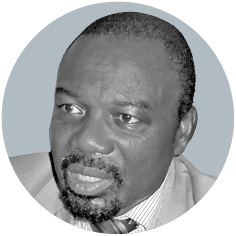Comment
The menace of Boko Haram
By Vladimir Antwi-Danso
The recent attacks in Kano and the Christmas bombings last year brought new awareness to the menace of the Islamist sect, known as Boko Haram. The name means: “Western education is evil”. This outfit has developed a distinct brand of terrorism in Nigeria by carrying out acts of violence in crowds and seeking to inflict as much bloodshed and damage as possible.
It is not exactly known when Boko Haram was formed. In November 2002, a Miss World contest was cancelled in Abuja, the national capital, because Muslim youth were rioting. About 100 people lost their lives. The next year, the group Boko Haram became known. Loosely modelled on the Taliban in Afghanistan and Pakistan, it is concentrated mainly in Nigeria’s north. Boko Haram considers all who do not follow its strict ideology as infidels, whether they be Christian or Muslim.
Initially, Boko Haram’s violent action was limited to Nigeria’s north, but that has changed. Last year, the outfit attacked the police headquarters as well as the UN building in Abuja, for instance.
While Boko Haram is certainly a Nigerian phenomenon, it has grown in conditions that are typical of many African countries. The continent’s national borders were drawn by the colonial powers. They cut across cultural and ethnic identities. Nigeria, for instance, has 250 identifiable tribes and over 400 dialects, so the country is something of an artificial nation. People do not feel loyal to the state, but to their clan, tribe or sect, and it is easy to mobilise them by emphasising identity issues.
The religious divide that is the result of Arab and European conquests compounds such problems. The Arabs planted Islam in the Sahelian regions, whereas the Europeans introduced Christendom.
As in much of Africa, governance in Nigeria has for decades been characterised by predatory elites and incomplete institutional development. The general attitude is that government positions are means to enrich oneself and one’s patronage network. There is no real sense of serving the nation as a whole. In Nigeria, a country with huge oil reserves, governance became grotesquely exploitative.
Though the country is blessed with natural resources, the vast majority of the people is desperately poor, especially in the predominantly Muslim regions. Despite a per capita income of more than $ 2,700 and annual GDP growth of seven per cent, 70 % of the people live on less than $ 1.25 a day. In the north, 72 % live in poverty compared with 27 % in the south and 35 % in the Niger Delta. No doubt, Boko Haram is infusing religion into a long-churning brew of grievances about corruption, injustice and an unfair distribution of wealth and power.
The sophistication of Boko Haram’s operations indicates that the group may enjoy support from some Nigerian government officials. Moreover, it is likely to have links to international terrorist organisations like the Somalian al-Shabab or al-Qaeda in the Islamic Maghreb. Boko Haram may well get support from outside Nigeria. Boko Haram is a menace that deserves attention not only from Nigeria’s government, but also from the Economic Community of West African States, the African Union and the entire international community.
The government of Nigeria must move beyond the blunt use of lethal force. Sending tanks into the streets and declaring a state of emergency, as President Jonathan Goodluck did after the Christmas attacks, may appease an angry public, but it is not an effective counterterrorism policy. Nigeria needs a better system of governance. Probity and accountability must become the norm, and the government must tackle social issues of education, health, employment and housing. Doing so is most urgent in the country’s north. Unless there is an accelerated development programme for Nigeria’s deprived areas, sects, tribes and clans will remain the driving forces of Nigerian politics – and Boko Haram is merely the most destructive expression of that trend.








